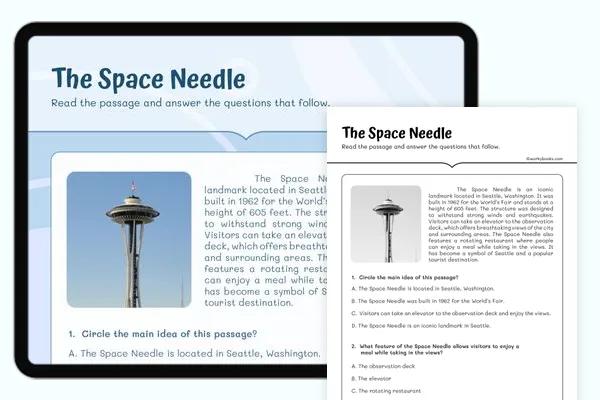Andromeda - Our Galactic Neighbor — Passage

Andromeda is the closest large galaxy to our Milky Way, and it's an impressive sight! Also known as Messier 31 or M31, this galaxy is visible to the naked eye on dark, clear nights. It appears as a faint, fuzzy patch in the constellation Andromeda, which is how it got its name.
Like our Milky Way, Andromeda is a spiral galaxy. It's huge, containing about one trillion stars - that's even more than our own galaxy! If you could travel at the speed of light, it would take you more than 200,000 years to cross from one side of Andromeda to the other.
Despite being our closest galactic neighbor, Andromeda is incredibly far away. It's about 2.5 million light-years from Earth. This means that when we look at Andromeda, we're seeing light that left the galaxy 2.5 million years ago. It's like looking back in time!
Scientists have learned a lot about Andromeda using powerful telescopes. They've discovered that it has a supermassive black hole at its center, just like our Milky Way. They've also found that Andromeda and the Milky Way are moving towards each other. In about 4.5 billion years, the two galaxies will collide and merge into one giant galaxy!
Studying Andromeda helps us understand more about our own galaxy and the universe. It's like having a cosmic next-door neighbor that we can observe and learn from.
What is the main idea of this passage?
Andromeda is a planet in our solar systemAndromeda is the closest large galaxy to the Milky Way and has many interesting featuresAndromeda is farther away than any other galaxyAndromeda is smaller than the Milky WayWhich detail supports the idea that Andromeda is very large?
It's visible to the naked eyeIt's named after a constellationIt contains about one trillion starsIt has a black hole at its centerHow far away is Andromeda from Earth?
5 thousand light-years5 million light-years5 billion light-years5 trillion light-yearsWhat will happen to Andromeda and the Milky Way in the future?
They will move farther apartThey will collide and mergeAndromeda will disappearThe Milky Way will disappearHow does studying Andromeda help scientists?
It helps them understand more about our own galaxy and the universeIt helps them predict the weatherIt helps them build better rocketsIt helps them find new planets in our solar systemWhat does the passage say about the light we see from Andromeda?
It left Andromeda yesterdayIt left Andromeda last year5 million years agoIt hasn't reached Earth yet



















